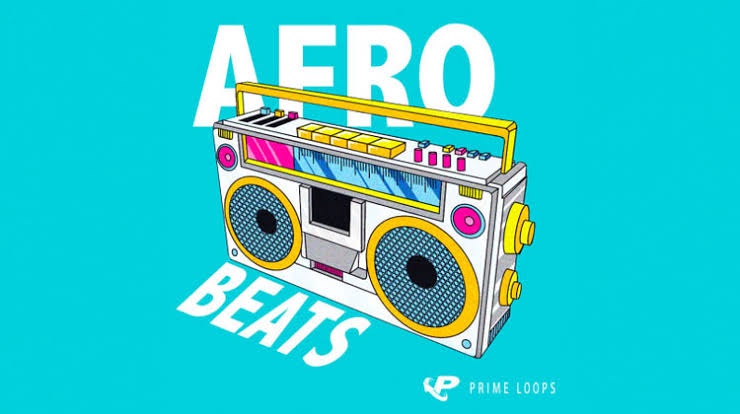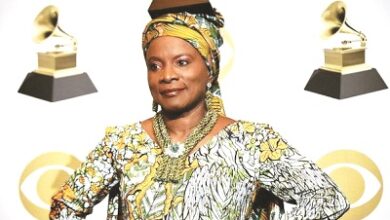
Over the years, Afrobeats has been gaining momentum, and has become a force to be reckoned with in the global music industry. Originating from Lagos, Nigeria, Afrobeats has taken the world by storm with its infectious rhythms and upbeat melodies. From Wizkid to Burna Boy and Davido, the music genre is rapidly capturing the hearts of music lovers worldwide. The fusion of African rhythms, hip-hop, and R&B has created a unique sound that is resonating with audiences across the globe. In this article, we will explore the rise of Afrobeats and how it is becoming a dominant force on the global music scene. We will also take a closer look at some of the biggest names in the genre and their impact on the industry. So, sit back, relax, and let’s dive into the world of Afrobeats.
History of Afrobeats
Afrobeats, also known as Afro-pop, is a music genre that originated in Nigeria in the late 1990s. It is a fusion of traditional African rhythms and contemporary Western music styles, such as hip-hop, R&B, and dancehall. The sound is characterized by its infectious beats, catchy melodies, and vibrant energy.
One of the pioneers of Afrobeats is Fela Kuti, a Nigerian musician who is widely regarded as the father of the genre. His music was a fusion of jazz, funk, and traditional African rhythms, and he used his music as a platform to criticize the Nigerian government and advocate for social change. Fela Kuti’s music was a major influence on the development of Afrobeats, and his legacy continues to inspire a new generation of Afrobeats artists.
Afrobeats gained popularity in Nigeria in the early 2000s, and it quickly spread across Africa, becoming a dominant force in the African music scene. It wasn’t until the mid-2010s that Afrobeats began to gain traction on the global music scene, thanks to the success of artists like Wizkid, Davido, and Burna Boy.
Key elements of Afrobeats music
Afrobeats is a genre that is defined by its unique sound, which is a fusion of African rhythms, hip-hop, R&B, and dancehall. The music is characterized by its upbeat tempo, catchy melodies, and infectious rhythms.
The use of African percussion instruments, such as the djembe, talking drum, and shekere, is a key element of Afrobeats music. These instruments are used to create the signature rhythms that are synonymous with the genre. The use of call-and-response vocals is also a common feature of Afrobeats music, which adds to the lively and energetic feel of the music.
Another important element of Afrobeats music is its lyrics. Many Afrobeats songs are written in English and local African languages, and they often address social and political issues, such as corruption, poverty, and inequality. The lyrics are often delivered in a rhythmic and poetic style, which adds to the overall vibe of the music.
Afrobeats in Nigeria
Afrobeats has become a dominant force in the Nigerian music scene, and it is a major contributor to the country’s economy. The music industry in Nigeria is estimated to be worth over $700 million, and Afrobeats accounts for a significant portion of that.
The success of Afrobeats in Nigeria can be attributed to the rise of digital streaming platforms, such as Spotify and Apple Music, which have made it easier for Nigerian artists to reach a global audience. Social media has also played a significant role in the rise of Afrobeats, with artists using platforms like Instagram and Twitter to promote their music and connect with fans.
One of the biggest Afrobeats stars in Nigeria is Davido, who has won numerous awards for his music and has collaborated with international artists like Chris Brown and Meek Mill. Wizkid is another Nigerian artist who has achieved global success with his music, collaborating with the likes of Drake and Beyonce.
Afrobeats artists making waves globally
Afrobeats has become a global phenomenon, with artists from Nigeria and other African countries gaining recognition on the international music scene. Burna Boy, a Nigerian artist, has become one of the biggest names in Afrobeats, winning a Grammy Award for his album ‘Twice as Tall’ in 2021. His music has been described as a fusion of Afrobeats, dancehall, and reggae, and he has collaborated with artists like Stormzy, Jorja Smith, and Justin Bieber.
Another artist making waves in the global music scene is Tiwa Savage, a Nigerian singer and songwriter who has been dubbed the ‘Queen of Afrobeats.’ She has collaborated with international artists like Beyonce and Coldplay, and her music has been featured on major platforms like Apple Music and Spotify.
Other notable Afrobeats artists who are gaining recognition globally include Mr Eazi, Yemi Alade, and Rema. These artists have been able to achieve global success by blending African rhythms with contemporary Western music styles, creating a sound that is unique and infectious.
Afrobeats collaborations with international artists
One of the reasons for Afrobeats’ global success is its ability to collaborate with international artists, creating a fusion of different music styles and cultures. Afrobeats artists have collaborated with a wide range of international artists, including Drake, Beyonce, and Ed Sheeran, among others.
One of the most notable collaborations in recent years was Beyonce’s album ‘The Lion King: The Gift,’ which featured several Afrobeats artists, including Burna Boy, Wizkid, and Tiwa Savage. The album was a major success, and it helped to introduce Afrobeats to a global audience.
Another notable collaboration was Drake’s song ‘One Dance,’ which featured Wizkid and was a massive hit around the world. The song was a fusion of Afrobeats, dancehall, and pop, and it helped to bring Afrobeats to the mainstream.
Impact of social media on Afrobeats’ global success
Social media has played a significant role in the rise of Afrobeats, with artists using platforms like Instagram and Twitter to promote their music and connect with fans. Social media has also made it easier for fans to discover new music and connect with artists, regardless of their location.
Many Afrobeats artists have used social media to build a strong fan base and promote their music to a global audience. Wizkid, for example, has over 11 million followers on Instagram, while Davido has over 20 million. These artists use their social media platforms to share new music, tour dates, and behind-the-scenes footage, which helps to keep fans engaged and excited about their music.
Afrobeats’ influence on fashion and culture
Afrobeats has not only had an impact on the music industry but has also influenced fashion and culture. The vibrant and colorful style of Afrobeats music has inspired a new wave of African fashion, with designers incorporating African prints and textiles into their designs.
Afrobeats has also had an impact on African culture, with many young people identifying with the music and using it as a way to express their African identity. The music has become a symbol of African pride and has helped to promote African culture on the global stage.
Challenges facing Afrobeats’ global domination
While Afrobeats has made significant strides in the global music scene, there are still challenges facing its global domination. One of the biggest challenges is the lack of infrastructure in the African music industry, which makes it difficult for artists to promote their music and reach a wider audience.
Another challenge is the lack of support from major record labels, who have been slow to invest in Afrobeats artists. This has made it difficult for artists to access the resources they need to build their careers and compete with other global artists.
Conclusion: The future of Afrobeats
Despite these challenges, Afrobeats is poised for even greater success in the future. The rise of digital streaming platforms and social media has made it easier for African artists to reach a global audience, and the increasing popularity of Afrobeats is a testament to the power of African music.
With the rise of artists like Olamide and Tiwa Savage, Afrobeats is becoming a dominant force in the global music scene, and it is only a matter of time before it becomes a mainstream genre. As long as African artists continue to create music that resonates with audiences around the world, the future of Afrobeats looks bright.




